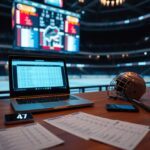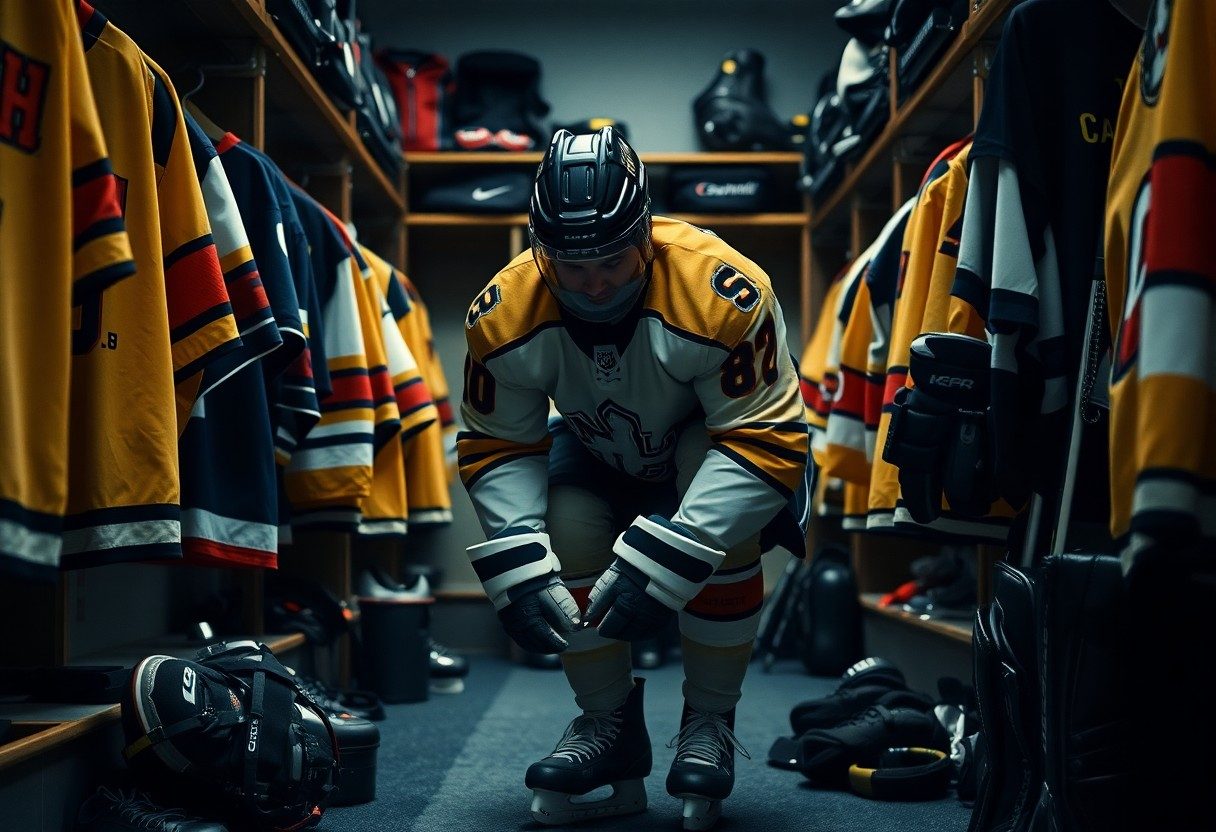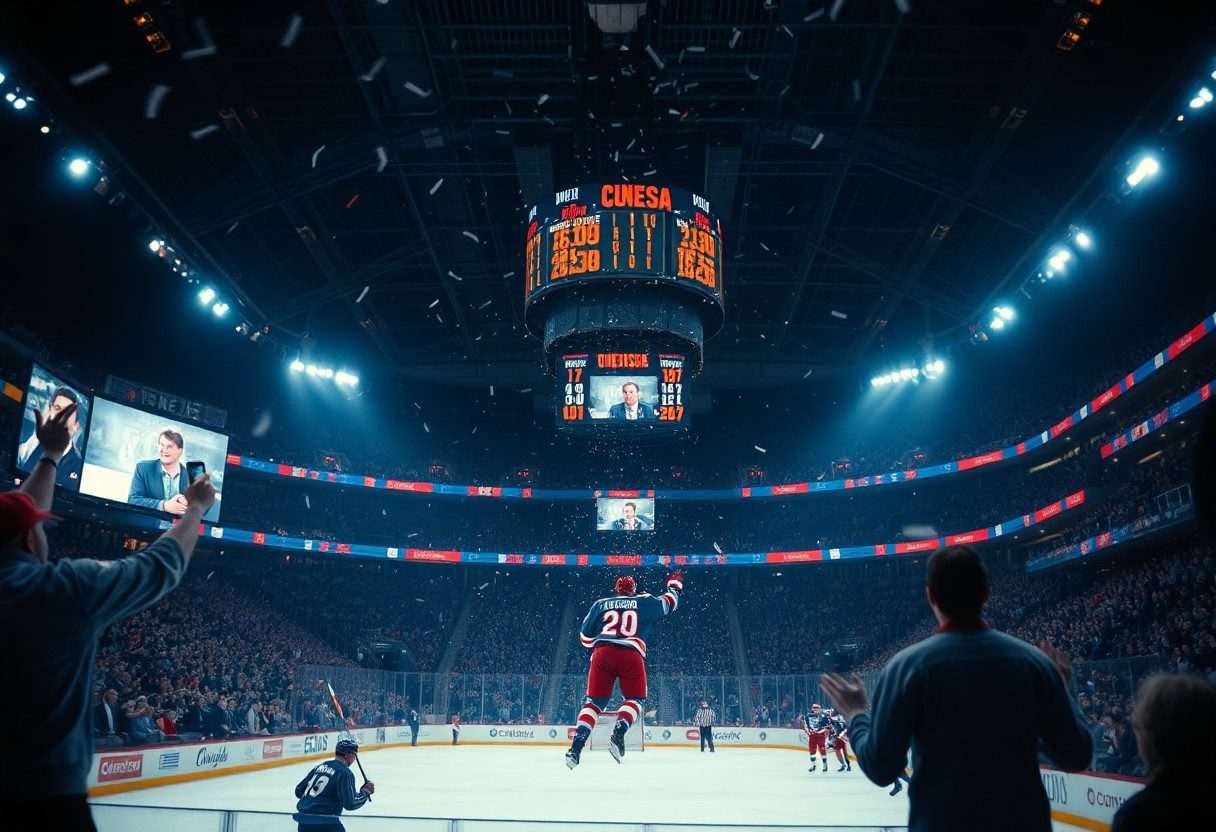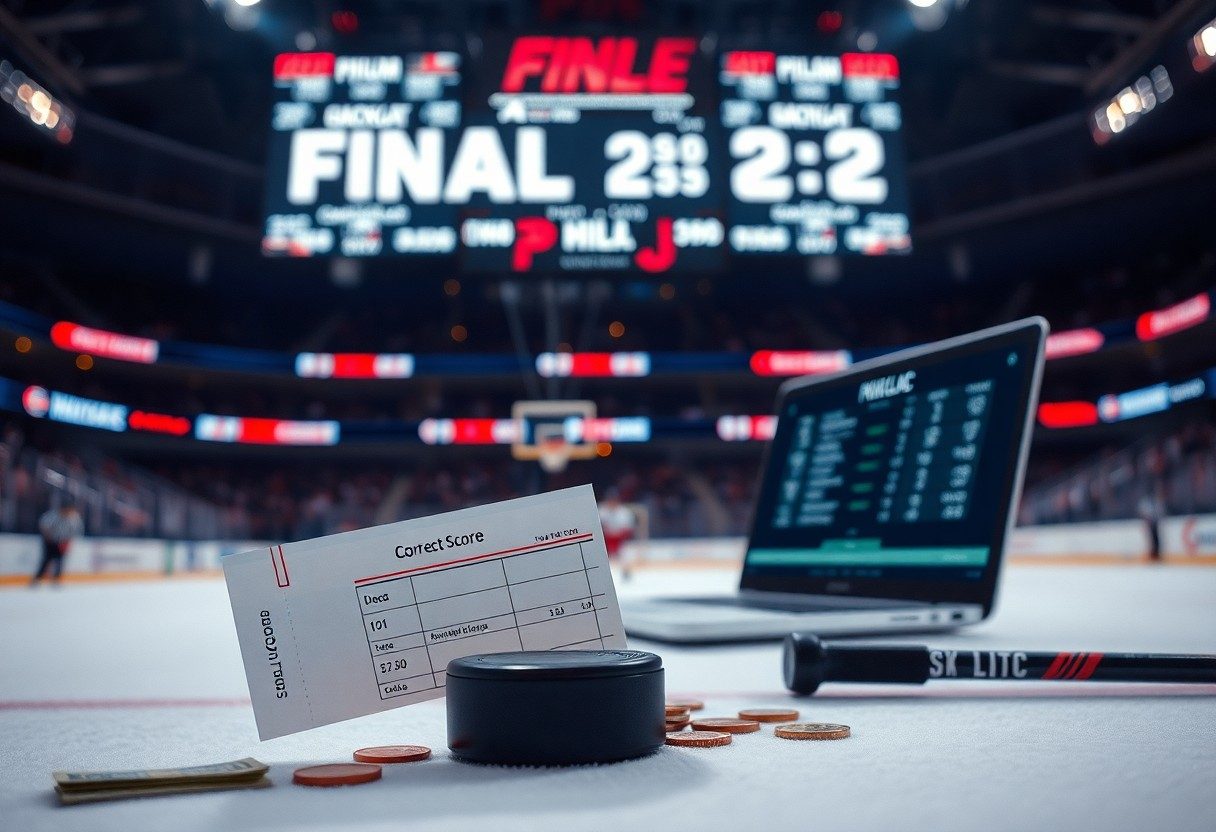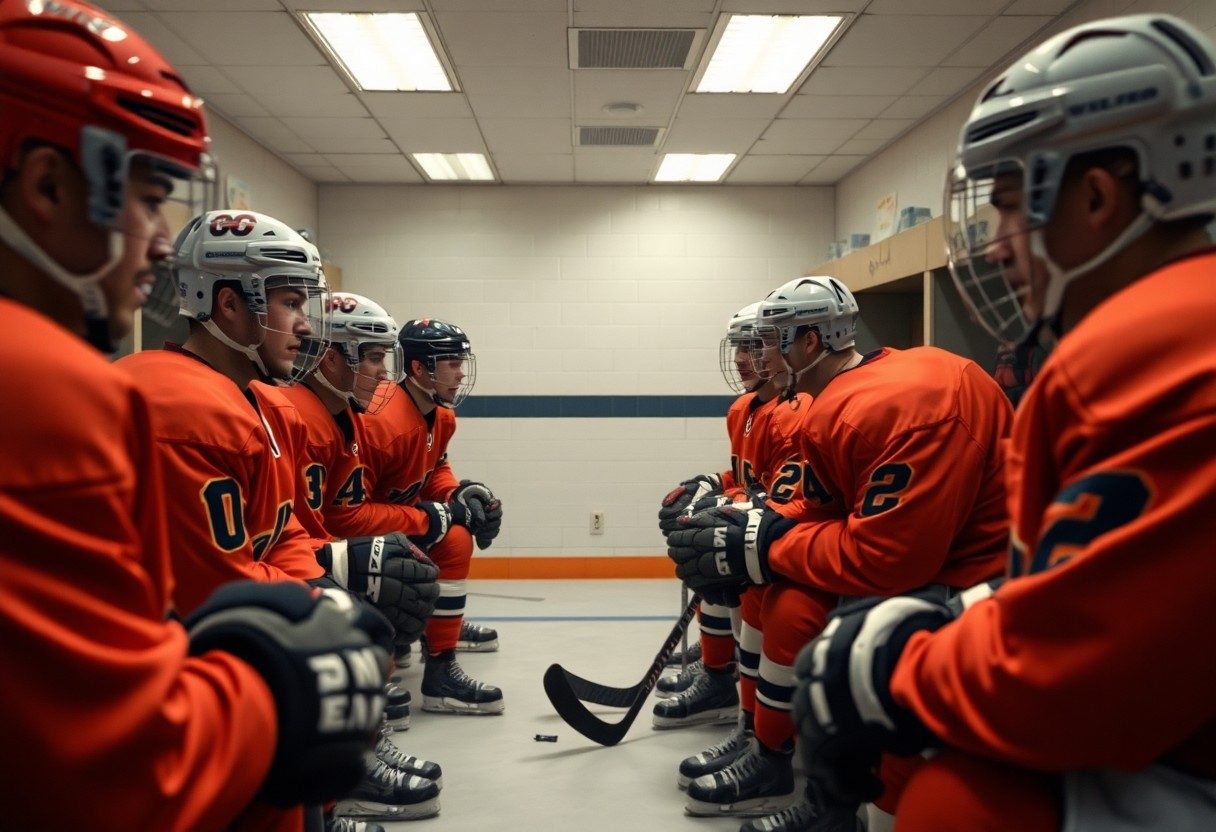Professional NHL players adhere to a meticulously structured daily routine that optimizes their performance and well-being. From rigorous early morning workouts to strategic meal planning and mental conditioning sessions, each aspect is designed to enhance their skills and maintain peak physical condition. Balancing intense physical training with recovery practices is vital, as the sport is not only physically demanding but also poses numerous injury risks. In this guide, we probe into the various elements that compose the daily life of these athletes, providing insights into their disciplined lifestyle and commitment to excellence.
Types of Routines
- Pre-Game routines
- In-Game strategies
- Post-Game recovery
- Nutrition plans
- Mental preparation
| Routine Type | Description |
| Pre-Game | Activities before the match. |
| In-Game | Tactics during play. |
| Post-Game | Recovery efforts post-match. |
| Nutrition | Dietary strategies. |
| Mental | Focus and mindset. |
Any professional player navigates these routines seamlessly to enhance performance.
Pre-Game Activities
Prior to games, players engage in pre-game activities that include personalized warm-ups, team meetings, and nutrition management. They often follow a specific timeline to ensure physical readiness and mental focus, incorporating practices such as light stretching, a suitable meal, and visualization techniques. These preparations are key to establishing momentum before taking the ice.
Post-Game Recovery
Following each game, players participate in post-game recovery routines, critical for overall performance and longevity. This may involve hydration, stretching, ice baths, and targeted physical therapy to alleviate fatigue and prevent injuries. These practices are necessary to maintain peak physical condition.
Post-game recovery extends beyond mere physical treatment. Players often engage in active recovery methods, such as low-intensity workouts, protein intake for muscle repair, and sleep optimization. Additionally, mental recovery strategies, including meditation and reflection, are vital for maintaining psychological resilience during the demanding NHL season.
Key Factors in Daily Routine
The daily routine of a professional NHL player hinges on several key factors that contribute to peak performance. These components include nutrition, hydration, training, and recovery, each playing an integral role in maintaining athletic success. Elite players are often meticulous in their scheduling, allowing for optimal focus and readiness. Quality sleep, expert coaching, and sound practices cultivate a competitive edge. Thou must prioritize these elements for sustained excellence on and off the ice.
Nutrition and Hydration
Proper nutrition and hydration are foundational to an NHL player’s daily regimen. Meals are carefully curated to balance macronutrients, providing the necessary energy for intense practice and games. Players typically consume lean proteins, whole grains, and plenty of fruits and vegetables while staying hydrated with water and electrolyte-rich beverages. This attention to diet fuels performance and aids recovery, ensuring players are at their best when it matters most.
Training and Conditioning
Training and conditioning are pivotal in an NHL player’s routine, defined by rigorous on-ice sessions and off-ice workouts. Players often engage in targeted strength training, agility drills, and cardiovascular exercises, all designed to enhance their speed, strength, and endurance. Each training day is meticulously planned, often beginning with skill drills followed by tactical discussions and high-intensity conditioning sessions. The dedication to a structured training program keeps players ready to compete at the highest level, with many professional athletes completing over 30 hours of training per week. This relentless commitment ensures that they stay ahead of the competition, optimizing every moment for performance.
Step-by-Step Guide to a Typical Day
| Time | Activity |
| 7:00 AM | Wake up and hydrate |
| 7:30 AM | Morning workout and flexibility session |
| 8:30 AM | Breakfast with a focus on protein and carbs |
| 10:00 AM | Video analysis of previous games |
| 12:00 PM | Team practice session |
| 2:00 PM | Lunch and rest |
| 4:00 PM | Pre-game meal and mental preparation |
| 6:00 PM | Warm-up and final preparations |
Morning Routine
The day begins early, often around 7:00 AM, with hydration as a top priority. Players drink water to replenish overnight fluid loss, followed by a dedicated morning workout, usually incorporating strength and flexibility training. A hearty breakfast rich in protein and carbohydrates fuels their energy levels, ensuring they start the day with the right nutrition for optimal performance.
Afternoon Preparations
Post-practice, players focus on recovery and strategy. After lunch, they engage in detailed video analysis to dissect their play and assess areas for improvement. This session typically lasts an hour and is crucial in refining techniques and understanding opponents’ strategies. They also partake in brief individual workouts to address specific skills, preparing them rigorously for upcoming games.
Tips for Aspiring Players
For aspiring players aiming to elevate their game and possibly turn professional, there are several practices to adopt. Focus on enhancing your skills through consistent training, maintaining physical fitness, and prioritizing nutrition. Building mental resilience and a positive attitude is key, as is seeking feedback from coaches. Surround yourself with a supportive environment and remain dedicated to your goals. Knowing that success comes from hard work and perseverance will set you apart.
- Enhance your skills through consistent practice.
- Maintain a dedicated exercise regimen.
- Prioritize nutrition for optimal performance.
- Develop mental resilience through visualization techniques.
- Seek feedback from experienced coaches.
Mental Preparation
Mental preparation is integral for players to perform at their best. Engaging in visualization techniques, where players imagine successful plays and outcomes, can enhance confidence and focus. Many NHL players utilize mindfulness practices such as meditation or breathing exercises to stay calm under pressure. By cultivating a strong mental game, players not only improve on-ice performance but also foster a growth mindset important for personal development.
Time Management
Effective time management is vital for balancing training, games, and personal life. Players often create detailed schedules that designate time slots for workouts, meals, rest, and recovery. Prioritizing tasks and maintaining structure can lead to improved performance and less stress, allowing players to focus on their training without distractions. Scheduled downtime is also important for mental recovery and personal growth.
In the high-stakes world of professional hockey, players face numerous demands on their time. Thus, successful NHL players typically employ various techniques to maximize productivity. Utilizing tools like calendars and reminder apps can help keep track of training sessions, educational opportunities, and personal commitments. Allocating uninterrupted time for rest and relaxation is equally important as it ensures sustainable performance, avoiding burnout. This approach nurtures not only athletic prowess but also personal well-being, reaffirming that time management isn’t just about efficiency—it’s about holistic development.
Pros and Cons of the NHL Player Lifestyle
| Pros | Cons |
|---|---|
| High earning potential | Long, grueling hours |
| World-class training facilities | Risk of injury |
| Travel opportunities | Limited family time |
| Access to elite coaching | Mental health stressors |
| High level of competition | Constant performance pressure |
| Networking with professionals | Short career span |
| Fan support and recognition | Limited personal privacy |
| Opportunity for sponsorships | Demanding training regimens |
| Strong team camaraderie | Frequent relocations |
| Ability to inspire others | Post-career uncertainty |
Advantages of Training Regimens
The training regimens of NHL players are meticulously designed to enhance strength, endurance, and agility. Athletes often utilize advanced techniques such as high-intensity interval training and specialized workouts targeting specific muscle groups. This comprehensive approach not only helps in developing on-ice skills but also in improving overall health, ensuring that players can perform at their best during intense competitive seasons.
Challenges Faced
Despite the glamorous appearances, NHL players encounter significant challenges, including injuries, personal sacrifices, and mental health struggles. Pushed to their limits, athletes must adhere to strict training schedules that can lead to both physical and emotional tolls. Additionally, the pressure to constantly excel can create a demanding environment wherein self-care often takes a backseat to performance requirements.
Players face numerous challenges beyond the rink. Injuries, which frequently occur, can sideline careers or lead to chronic pain following retirement. The lifestyle demands regular relocations and minimal family time, often straining personal relationships. Moreover, the intense scrutiny from media and fans can lead to mental health concerns, as players navigate expectations to maintain peak performance despite personal setbacks. Balancing athletic commitments while safeguarding mental well-being is a continuous struggle within this highly competitive realm.
Balancing Personal Life and Professional Demands
A professional NHL player faces the challenge of intertwining a demanding schedule with personal commitments. Ensuring adequate time for practice, travel, and games requires effective time management strategies. Players often navigate their calendars meticulously, allocating time not just for training but also for family, hobbies, and self-care, recognizing that a balanced life contributes to sustained performance on the ice.
Family and Relationships
Strong relationships are vital for NHL players, providing emotional support amidst the pressure of the sport. Regular communication with family and friends helps maintain connection, even during travel-heavy seasons. Many players prioritize family time on off days, understanding that these bonds foster resilience and mental well-being, necessary for high-stakes competition.
Time Off and Rest
Rest is necessary for recovery and performance in the NHL. Players typically have designated days off where they focus entirely on recuperation, whether through relaxation or pursuing hobbies. During these breaks, some engage in light activities, while others prioritize sleep and nutrition, acknowledging that even small adjustments can lead to significant gains on the ice.
Conclusion
Upon reflecting on the daily routine of a professional NHL player, it becomes evident that discipline, time management, and rigorous physical training are integral to their success. From early morning workouts to strategic planning sessions and focused game preparation, each element serves to enhance both individual performance and team dynamics. By adhering to a structured regimen that balances practice, rest, and nutrition, these athletes not only hone their skills but also cultivate the resilience necessary to compete at the highest level of ice hockey.
FAQ
Q: What does a typical training day look like for a professional NHL player?
A: A typical training day for a professional NHL player includes a morning skate or practice session, which typically lasts for about 60-90 minutes. This is followed by strength and conditioning workouts focused on building agility, endurance, and overall fitness. Players often review game footage and work on specific skills or strategies before having team meetings in the afternoon. Evening hours are usually reserved for further practice or recovery routines, such as physiotherapy and ice baths.
Q: How do NHL players manage their nutrition during the season?
A: NHL players prioritize their nutrition by working closely with sports nutritionists to develop meal plans that support their energy and recovery needs. They consume balanced diets with a focus on lean proteins, healthy fats, and complex carbohydrates. Pre- and post-game meals are specifically designed to optimize performance and recovery, and players often eat several smaller meals throughout the day to maintain their energy levels.
Q: What role does mental preparation play in an NHL player’s routine?
A: Mental preparation is vital for NHL players, involving techniques like visualization, mindfulness, and goal setting. Players often engage in mental exercises to enhance focus and reduce anxiety before games. Many utilize sports psychologists for strategies to maintain a strong mental game and develop resilience throughout the season. Incorporating relaxation techniques, such as meditation or deep breathing, is also common to improve mental clarity and performance under pressure.

